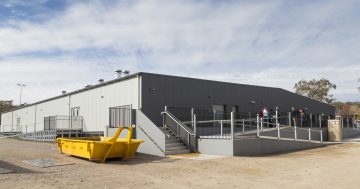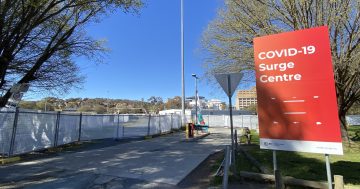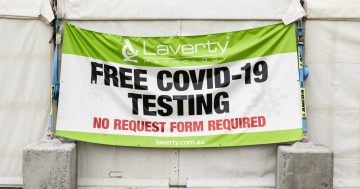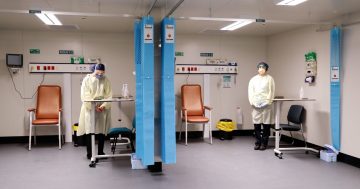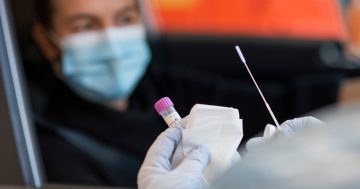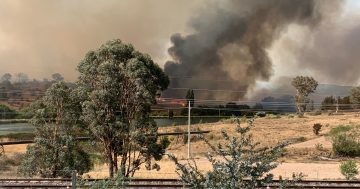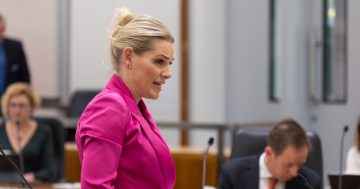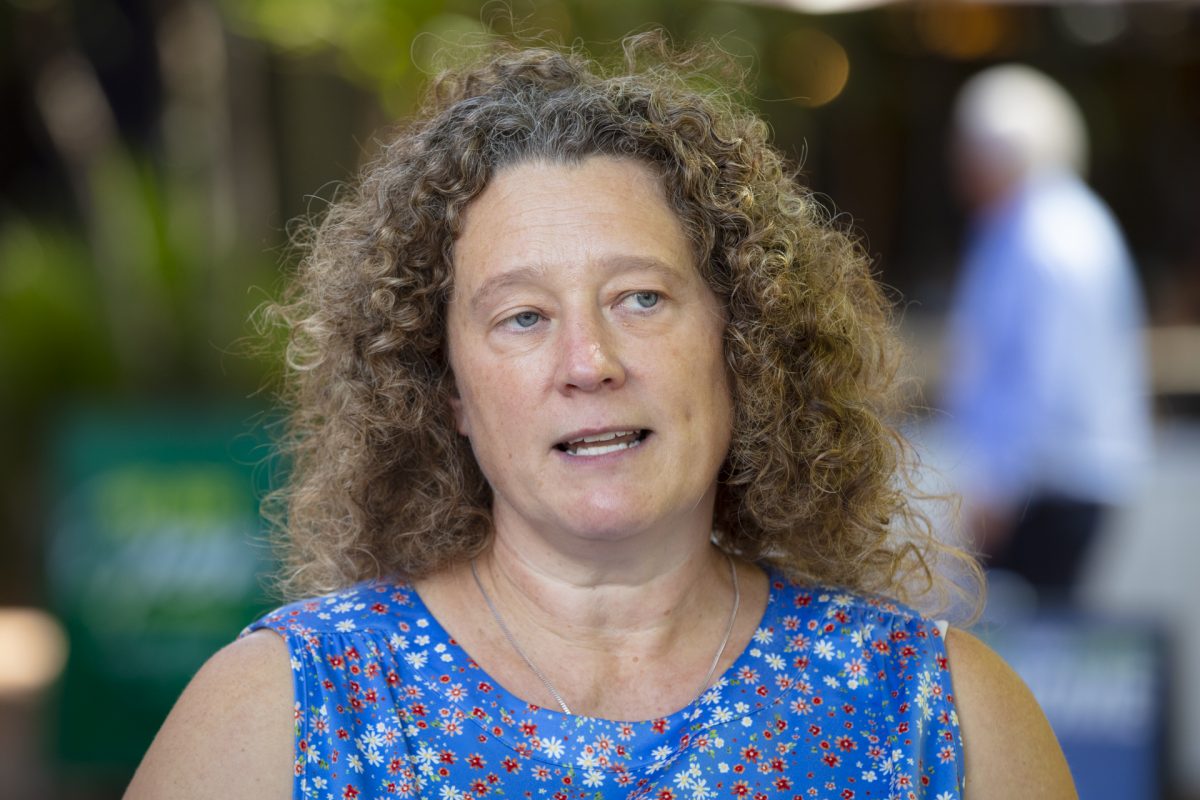
ACT Chief Health Officer Dr Kerryn Coleman advised the government some weeks ago that COVID-19 school rules could be relaxed. Photo: Thomas Lucraft.
Canberrans are being urged to enjoy themselves over the holiday season in a COVID-safe manner as the Territory’s Chief Health Officer, Dr Kerryn Coleman, foreshadows more changes to the pandemic response early in the New Year.
Changes to PCR testing will come into effect from Sunday, 25 December, as the Garran Surge Centre shuts its doors on Sundays.
It will be open until at least the end of February from Mondays to Saturdays, but the arrangements will be “reviewed” throughout January and February before any further decision is made.
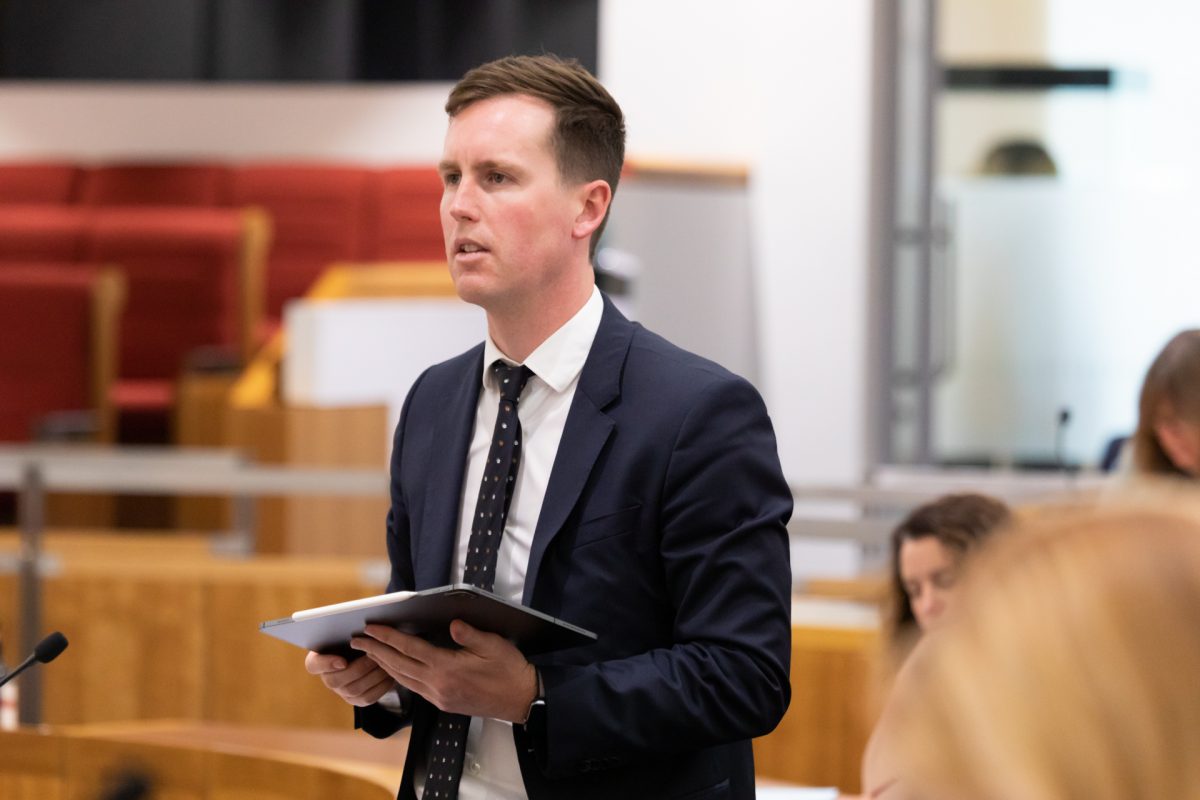
Acting Health Minister Chris Steel said the government would discuss PCR testing arrangements post-February next year. Photo: Michelle Kroll.
Acting Health Minister Chris Steel said discussions would encompass whether that facility was needed at all in the future, as well as issues like staffing and resourcing.
“We’ve been clear that it’s only those who are at higher risk of poor outcomes as a result of COVID-19 who require a PCR test,” Mr Steel said.
“We will be looking at what we do in relation to the COVID-19 Surge Centre at Garran and we will consider whether PCR testing is required in that location for free.”
Dr Coleman’s advice on how much surveillance was needed next year would also be sought, Mr Steel confirmed.
Earlier this month, the Federal Government’s 2023 COVID-19 plan sparked confusion when it stated PCR testing would only be available to those who had a referral from a GP.
It later clarified it would continue to jointly fund free state and territory-run PCR testing clinics.
Mandatory mask-wearing in high-risk settings is set to stay in place for the foreseeable future.
But modelling what is happening with the COVID-19 situation at the moment remains difficult for a number of reasons, Dr Coleman said.
That includes the multitude of variants circulating in the community, differing vaccination and previous infection statuses, and the unreliability of relying on self-reporting of rapid antigen tests (RATs) to measure the wave.
Dr Coleman, who said she wished she had a “crystal ball”, said it was difficult to say whether the Territory’s COVID-19 wave had peaked.
“Most of us believe we are on a bit of a grumbling peak,” she said.
“We’re not sure, and it’s hard to say because we just aren’t getting the information that we used to.”
She said it was unlikely to hit the peak levels of previous COVID-19 waves but there was some uncertainty associated with this due to an increase in movement expected in the community over Christmas and the New Year period.
The ACT’s health authorities are also closely monitoring the situation in China where cases are surging as the country reopens.
Dr Coleman said the focus for local health authorities would be on people who travelled in and out of the country, but this was the case for all travellers, not just those to and from China.
But while Dr Coleman said she believed “we are about 75 per cent of the way to treating COVID-19 like a normal disease”, more information and a deeper understanding of it was needed before it could become treated like an endemic disease.
“We’re not quite understanding enough about COVID-19 and what our ongoing vaccination strategy needs to be for us to call it totally endemic and to be really comfortable treating it like any other disease,” she said on Tuesday (20 December).
But she added that what would be needed was a cultural shift from the community’s perspective to being prepared to respond to outbreaks of COVID-19 by mask-wearing or just staying home when sick.












